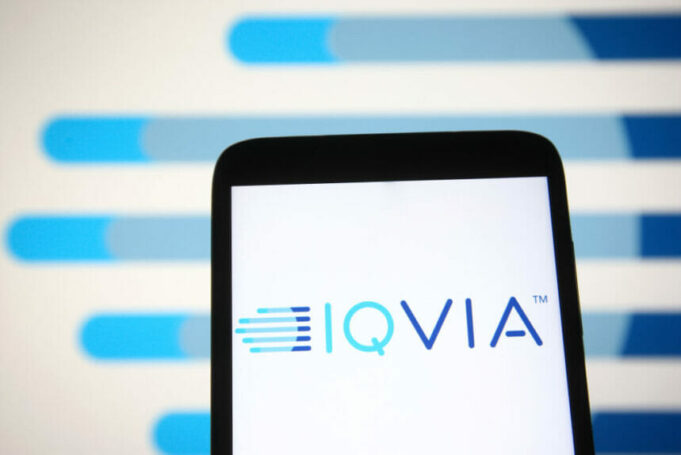IQVIA’s acquisition of Throtle, a healthcare identity – resolution company, was announced with remarkable subtlety — buried on Throtle’s “About” page. But the implications for pharmaceutical marketing and patient privacy are anything but quiet.
What Actually Happened
If you weren’t paying close attention, you might have missed it entirely. Throtle’s website now notes that “Throtle Inc. is a wholly owned subsidiary of IQVIA Inc., operating as an independent unit within IQVIA Digital.” No press release, no fanfare – just a quiet note on an About page.
This isn’t just another merger. It’s a power play for control of the increasingly vital intersection of data, identity, and patient engagement in healthcare marketing.
Why IQVIA Wanted Throtle
IQVIA, a behemoth in healthcare data and analytics, has long sought to bridge the gap between raw data and actionable marketing insights. The company needed a way to connect fragmented data points into unified, actionable profiles.
That’s where Throtle comes in. The company specializes in connecting fragmented online and offline data into unified audience profiles. Imagine a pharmaceutical company being able to precisely target patients and healthcare providers with personalized communications, all while adhering to strict privacy regulations.
That’s the promise: an “end-to-end linkage” that could revolutionize how healthcare brands connect with their audiences.
The Technology: Identity Graphs
Throtle’s core technology is an “identity graph”—a system that links healthcare professionals and consumers across devices and channels. This enables:
- More accurate targeting – Reaching the right providers and patients
- Better measurement – Understanding which marketing efforts actually work
- Cross-channel tracking – Following patient journeys across touchpoints
- Privacy-first compliance – Doing all this within regulatory frameworks
When asked for comment, Throtle’s president Chris Neuner directed inquiries to IQVIA, which has remained tight-lipped about the deal’s specifics.
What Pharmaceutical Marketers Get
For healthcare marketers, the benefits are clear:
- Streamlined operations – One vendor instead of multiple identity resolution partners
- Robust attribution models – Better understanding of marketing ROI
- Unified data view – Connecting prescription data, claims data, and digital behavior
- Reduced vendor complexity – Fewer integrations and data handoffs
Pharmaceutical companies spend billions on marketing. The ability to target more precisely and measure more accurately could save millions while improving campaign effectiveness.
The Monopoly Concern
But the consolidation of power in IQVIA’s hands raises serious concerns. IQVIA already dominates healthcare data. Adding Throtle’s identity resolution capabilities creates an even more powerful position.
Key questions:
- Will this create a closed ecosystem? – Access to key identity data and measurement tools could become restricted
- Will competitors be locked out? – Smaller identity resolution companies may struggle to compete
- Will prices increase? – Less competition typically means higher costs for clients
The FTC Factor
This isn’t the first time IQVIA’s acquisition strategy has drawn scrutiny. The FTC previously blocked IQVIA’s attempt to acquire programmatic ad platform DeepIntent, as reported by MMM-Online.
The quiet nature of the Throtle acquisition might be strategic—avoid the spotlight, avoid regulatory attention. But regulators are likely asking whether this deal concentrates too much power in one company’s hands.
The Privacy Paradox
Then there’s the bigger question: privacy. While Throtle emphasizes compliance and de-identification, the ability to connect disparate data points—from prescription history to online behavior—inevitably raises concerns.
Consider what’s possible with this combined data:
- Linking a patient’s prescription fills to their web browsing
- Connecting doctor’s prescribing patterns to their conference attendance
- Tracking patient engagement with pharmaceutical content across devices
- Building detailed profiles of healthcare provider behavior
All of this is technically possible within current privacy frameworks. But “technically legal” and “ethically sound” aren’t always the same thing.
“As IQVIA integrates Throtle’s tools into its offerings, the company will need to demonstrate robust governance, consent management and transparency to maintain public and client trust.”
The challenge for IQVIA is balancing the desire for richer, more compliant audience insights with the need to protect patient privacy and maintain public trust. This isn’t just a business imperative—it’s an ethical one.
What This Means for the Industry
The IQVIA-Throtle deal underscores a fundamental shift in healthcare marketing: the convergence of data, identity, and activation. Several trends are colliding:
Consolidation
Large players are acquiring specialized capabilities rather than building them. This creates efficiency but reduces competition.
Privacy-First Marketing
As third-party cookies disappear and privacy regulations tighten, identity resolution becomes more valuable—and more scrutinized.
Vertical Integration
Companies want to control the entire stack from data collection to campaign execution. IQVIA now has data, identity resolution, and activation capabilities under one roof.
The Unanswered Questions
Critical details remain unknown:
- Acquisition price – What did IQVIA pay for Throtle?
- Integration timeline – How quickly will Throtle’s tech be integrated into IQVIA’s offerings?
- Data governance – What specific safeguards will protect patient privacy?
- Competitive access – Will non-IQVIA clients still be able to use Throtle’s services?
- Regulatory review – Did the FTC review this acquisition? If so, what were the conditions?
Done wrong, it creates a data monopoly that stifles competition, raises costs, and erodes patient privacy.
The stakes are high. The future of healthcare marketing hinges on the ability to leverage data responsibly, ethically, and transparently. Whether IQVIA can successfully navigate this complex landscape remains to be seen.
But one thing is certain: regulators, competitors, and privacy advocates are watching closely. The quiet acquisition won’t stay quiet for long.

